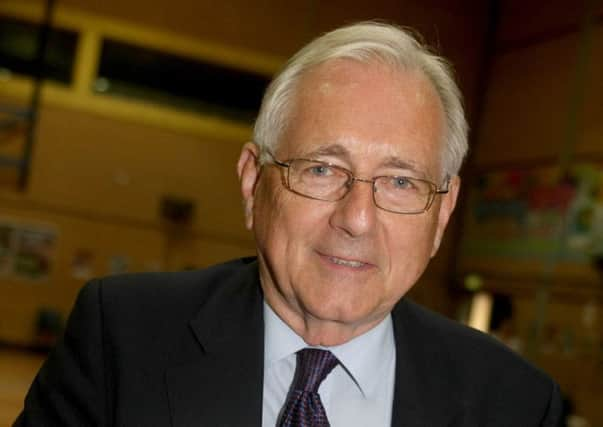SIR PETER BOTTOMLEY: Edited news and social media


Once, television and radio programmes had to be watched at the time of broadcast. After the middle period of the pre-set video recorder, we have come to a time when just about any programme is accessible for a time or forever afterwards and a few can be heard or watched before the scheduled time of transmission.
One advantage of tweets, Facebook and blogs is making available to all the information that might only be known to the few.
Advertisement
Hide AdAdvertisement
Hide AdOne disadvantage is that widespread sharing of unedited ‘news’ can spread an untruth far and wide.
Curiously, one field where falsehood seldom occurs is sport. There is no point in declaring a false result because the truth will be known; the person who knowing wrote the distortion would be disrespected and disregarded.
Unreliable social media has not created a new problem. Take the example in public health of the false MMR fears.
The well-edited medical journal The Lancet in 1998 was deceived; it mistakenly published a fraudulent research paper.
Advertisement
Hide AdAdvertisement
Hide AdThe author had many secret conflicts of interest, he mangled ‘evidence’ and broke ethical codes.
Many people wrongly came to believe that the combined measles, mumps and rubella vaccine could be linked to colitis and autism spectrum disorders.
Predictable publicity grew when a major contemporary public figure would not say that her baby had been protected.
People have to be quite old to remember the terrible human cost of the epidemics that would spread through the country like a Mexican wave.
Advertisement
Hide AdAdvertisement
Hide AdThe benefits of good local newspapers with responsible editors are widespread. No one expects to agree with every decision in the editorial process. That is life.
The bigger picture is that there is a moderated conversation. A story one week can be followed by comment, correction and often by information that broadens or deepens understanding.
In broadcasting, I recall with admiration the ways that radio and television helped us all to cut casualties on the roads.
30 years ago, the equivalents of social media could be experienced on BBC Radio 1 and with Esther Rantzen’s popular Sunday evening That’s Life! television programme.
Advertisement
Hide AdAdvertisement
Hide AdThen, the only national pop music station agreed to treat over-the-limit drink driving by younger male drivers as news and current affairs.
They did not broadcast public service messages from a 44-year-old minister; they did have disc jockeys, old and young, discuss rhythm and booze.
Esther picked up the fact that parents could cut the risk of child death or injury in car crashes by using car seats, boosters and seatbelts. Sales and use trebled.
Each of these initiatives contributed to the annual deaths coming down from over 5,000 to under 2,000 a year.
Advertisement
Hide AdAdvertisement
Hide AdPerhaps the best way forward is for social media and edited publications with broadcasters to combine for public good by identifying and helping with issues that matter directly to many in our community.
My examples include the reduction of unwanted conditions, whether unintended pregnancies or the transmission of anti-social disease.
The NHS has wisely added extra protections to the valuable cervical vaccine. We have not found the way yet to combat the terrifying growth in sexually transmitted conditions.
Can social media help to reduce anti-social problems?
---
Don’t miss out on all the latest breaking news where you live.
Advertisement
Hide AdAdvertisement
Hide AdHere are four ways you can be sure you’ll be amongst the first to know what’s going on.
1) Make our website your homepage
2) Like our Facebook page
3) Follow us on Twitter
4) Register with us by clicking on ‘sign in’ (top right corner). You can then receive our daily newsletter AND add your point of view to stories that you read here.
And do share with your family and friends - so they don’t miss out!
Always the first with your local news.
Be part of it.